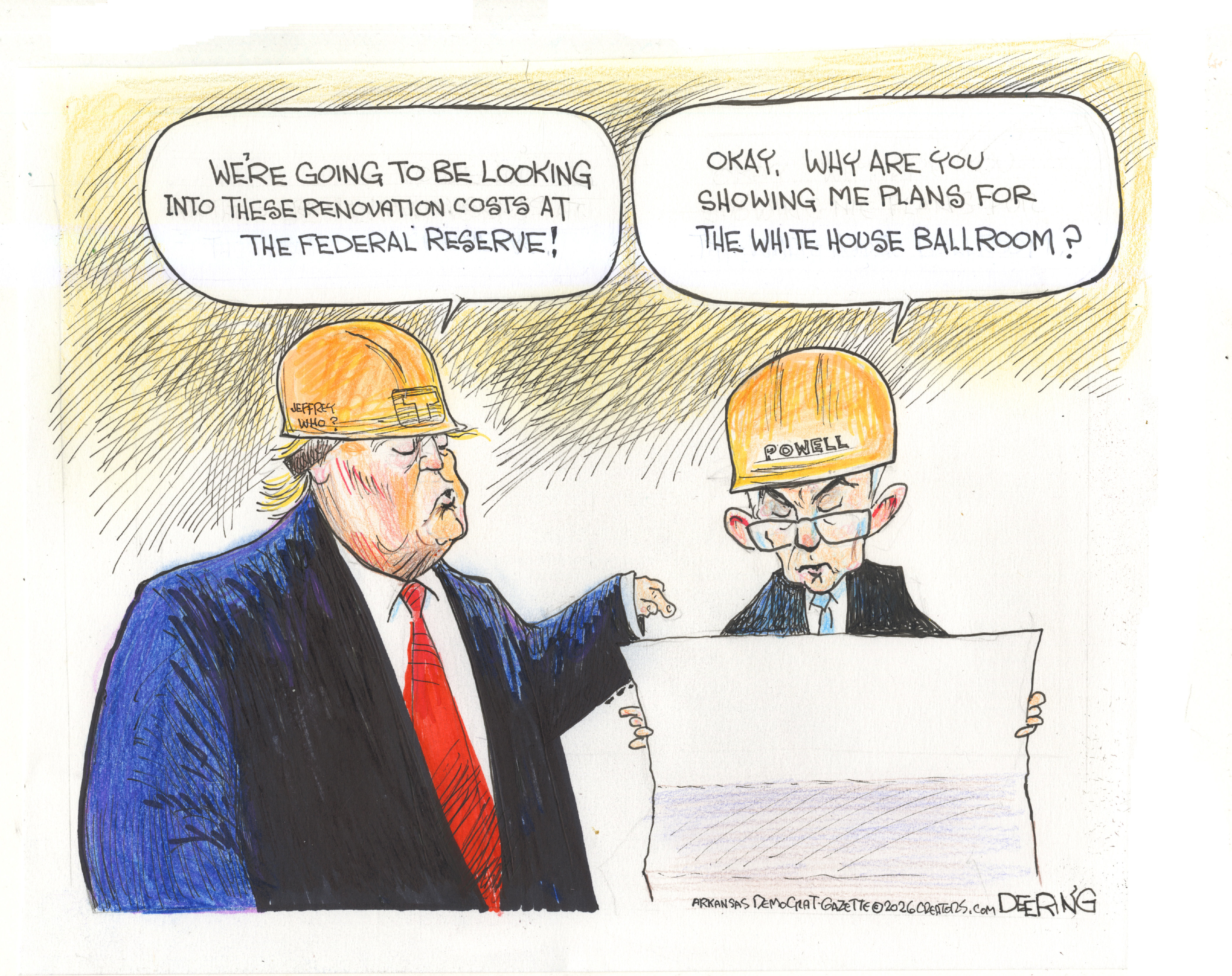Want to stop sexual abuse in the workplace? Unionize.
Unions can and should protect American workers from the bad behavior of powerful men


Since the Harvey Weinstein scandal broke last month, torrents of women have come forward with credible charges of sexual harassment, bringing down veteran journalists, big-name directors, and powerful politicians across the country. But this necessary reckoning has also relied on newsworthiness. The headlines blare, and the offending man is forced to retreat. That model can cut down a Weinstein, but is unlikely to work against, say, a restaurant supervisor who's guilty of the same behavior.
So what about all the female workers being harassed by men with power over them, but not enough power to be a juicy target for broad public outrage? For those women, a more old-fashioned solution may be in order: unions and labor organizing.
The intensely hierarchical nature of American capitalism extends up and down the wealth and income ladder. Indeed, it gets worse for the lower rungs: poor and working-class Americans put up with far fewer benefits, far less leave, lower wages, more chaotic schedules, more safety violations, and a host of other indignities. These workers have to get by in an economic environment where they're treated like disposable widgets.
The Week
Escape your echo chamber. Get the facts behind the news, plus analysis from multiple perspectives.

Sign up for The Week's Free Newsletters
From our morning news briefing to a weekly Good News Newsletter, get the best of The Week delivered directly to your inbox.
From our morning news briefing to a weekly Good News Newsletter, get the best of The Week delivered directly to your inbox.
Needless to say, being treated like a disposable widget extends to sexual predation — by customers and co-workers as well as by supervisors.
A 2014 investigation found that two-thirds of women working in the restaurant industry reported sexual harassment by management. Seventy-eight percent reported harassment from co-workers, and 80 percent reported it from customers. In Chicago, the hospitality workers' union recently surveyed its members and discovered that 58 percent of hotel workers and 77 percent of casino workers reported sexual harassment by a guest.
Overwhelming majorities of women don't report these offenses, thanks to harsh and often male-dominated workplace cultures that treat sexual harassment as just a fact of life. Many of these official tallies probably understate the problem. A 2016 analysis by the Equal Opportunity Commission concluded that as many as 85 percent of women report sexual harassment at work. And the problem seems to be most intense for women in low-wage jobs, in industries like service and agriculture.
Harassment occurs at all levels of the economy precisely because it's bound up with economic hierarchy. Women (and sometimes men) are targeted because they're dependent on someone else — be it a boss or customer — for an income, a job, a promotion, a career path, etc. Women in low-wage work also often face retaliation for trying to fight back: not merely the loss of a career, but the loss of a viable income of any form.
A free daily email with the biggest news stories of the day – and the best features from TheWeek.com
We need to confront the workplace hierarchy directly. That means unions and labor organizing. It means demands for more democratic workplaces, and established institutions and practices for dealing with sexual harassment. Many companies already have human resource departments, and labor movements can and should force the creation of more. But even these can wind up focusing more on the business' bottom line than the interests of owners. All of these demands must be backed by workers' ability to threaten protests, work stoppages, and strikes.
Sarah Leonard recently laid out in The New York Times how agricultural workers managed to establish the Fair Food Program after a massive labor fight with fast food companies. The Florida-based Coalition of Immokalee Workers fought back against rampant harassment on agricultural farms by organizing, and insisting that a swift system for dealing with complaints — and an independent body to oversee them — be built into that labor agreement. By all counts it seems to have worked. "It’s a problem we have eliminated, now women speak out,” Lupe Gonzalo, a tomato picker in the Immokalee fields, told Public Radio International. And they did it by organizing as workers, and by ultimately threatening the bottom line of both the agricultural operations and the fast food restaurants higher up the food chain.
Going forward, national labor battles like the Fight for 15 movement need to become the front lines in combating workplace sexual harassment as well.
Of course, to serve its role in that fight, the labor movement will also have to clean its own house. The two biggest unions in America, the AFL-CIO and SEIU, have both suffered a string of high-profile resignations and departures after prominent officials were accused of sexual harassment. According to a recent report by Bloomberg's Josh Eidelson, the AFL-CIO also largely ignored a previous report by an outside consulting group that found reports of "rampant" sexual harassment among the union's staff.
Given how many female workers there are in the service and fast food industries, they shouldn't hesitate to demand that their own labor organizers shape up. If there's one thing the history of labor's struggle makes clear, it's that no one can be left behind: One worker that can be demeaned and underpaid can be used by employers to undercut other workers elsewhere.
For many American women, their biggest tool in fighting sexual harassment will be the solidarity of their fellow workers.
Jeff Spross was the economics and business correspondent at TheWeek.com. He was previously a reporter at ThinkProgress.
-
 Political cartoons for January 17
Political cartoons for January 17Cartoons Saturday’s political cartoons include hard hats, compliance, and more
-
 Ultimate pasta alla Norma
Ultimate pasta alla NormaThe Week Recommends White miso and eggplant enrich the flavour of this classic pasta dish
-
 Death in Minneapolis: a shooting dividing the US
Death in Minneapolis: a shooting dividing the USIn the Spotlight Federal response to Renee Good’s shooting suggest priority is ‘vilifying Trump’s perceived enemies rather than informing the public’
-
 Late night hosts joke about Trump's forced exodus from Facebook to blog
Late night hosts joke about Trump's forced exodus from Facebook to blogSpeed Read
-
 Fox News admits Biden doesn't actually want to cancel meat. Late night hosts pounce anyway.
Fox News admits Biden doesn't actually want to cancel meat. Late night hosts pounce anyway.Speed Read
-
 Manhattan D.A. will stop prosecuting sex workers, not their clients, pimps, or sex traffickers
Manhattan D.A. will stop prosecuting sex workers, not their clients, pimps, or sex traffickersSpeed Read
-
 John Oliver explains personal bankruptcy, how credit card lobbyists and lawyers make it much worse
John Oliver explains personal bankruptcy, how credit card lobbyists and lawyers make it much worseSpeed Read
-
 John Oliver explores problems with U.S. nursing homes and long-term care, suggests you pay attention
John Oliver explores problems with U.S. nursing homes and long-term care, suggests you pay attentionSpeed Read
-
 John Oliver tries to explain whether you should worry about the enormous U.S. national debt
John Oliver tries to explain whether you should worry about the enormous U.S. national debtSpeed Read
-
 Late night hosts laugh at the giant ship blocking the Suez Canal, chide Fox News for fake Kamala Harris scandal
Late night hosts laugh at the giant ship blocking the Suez Canal, chide Fox News for fake Kamala Harris scandalSpeed Read
-
 Utah governor signs bill requiring porn blocking on all new smartphones and tablets
Utah governor signs bill requiring porn blocking on all new smartphones and tabletsSpeed Read
